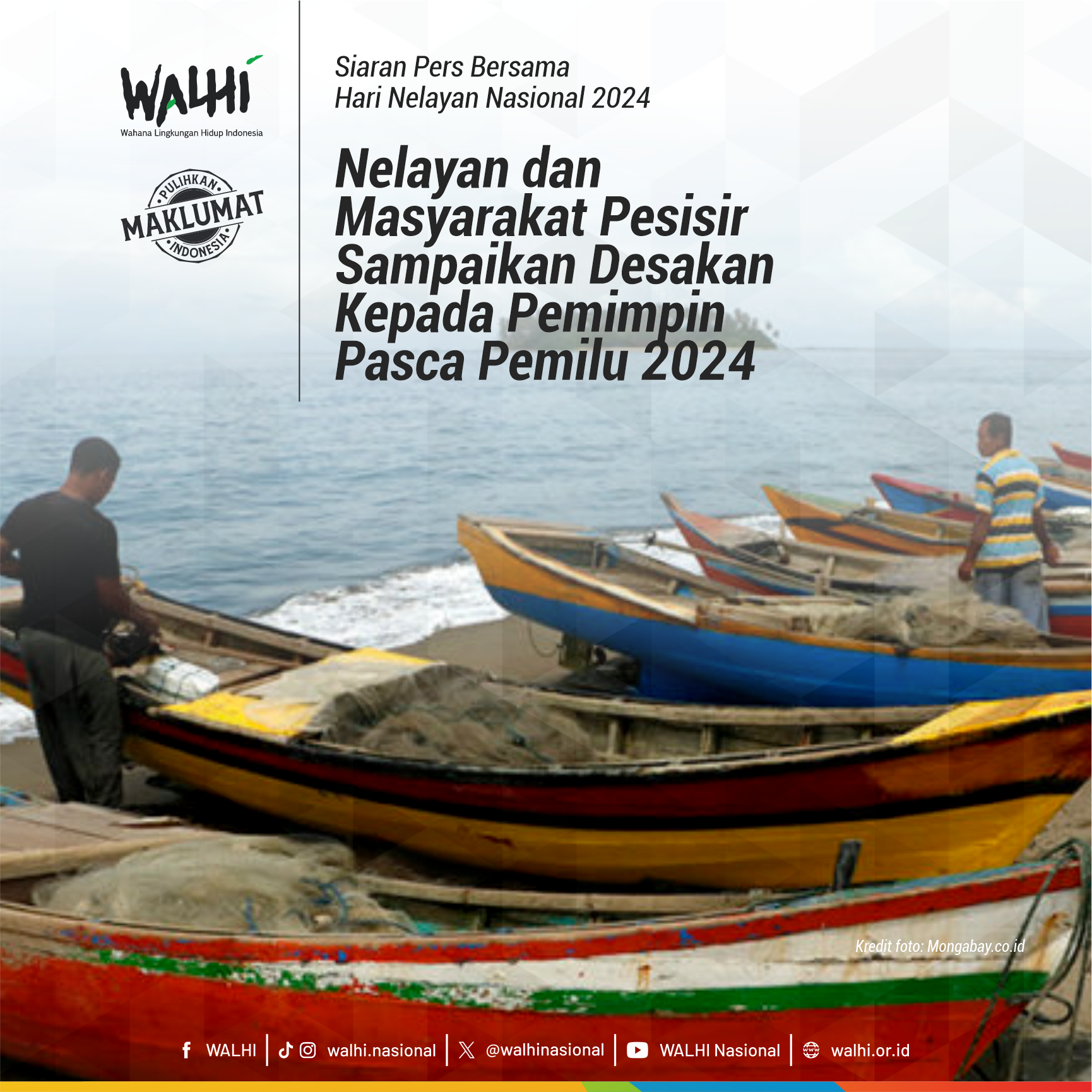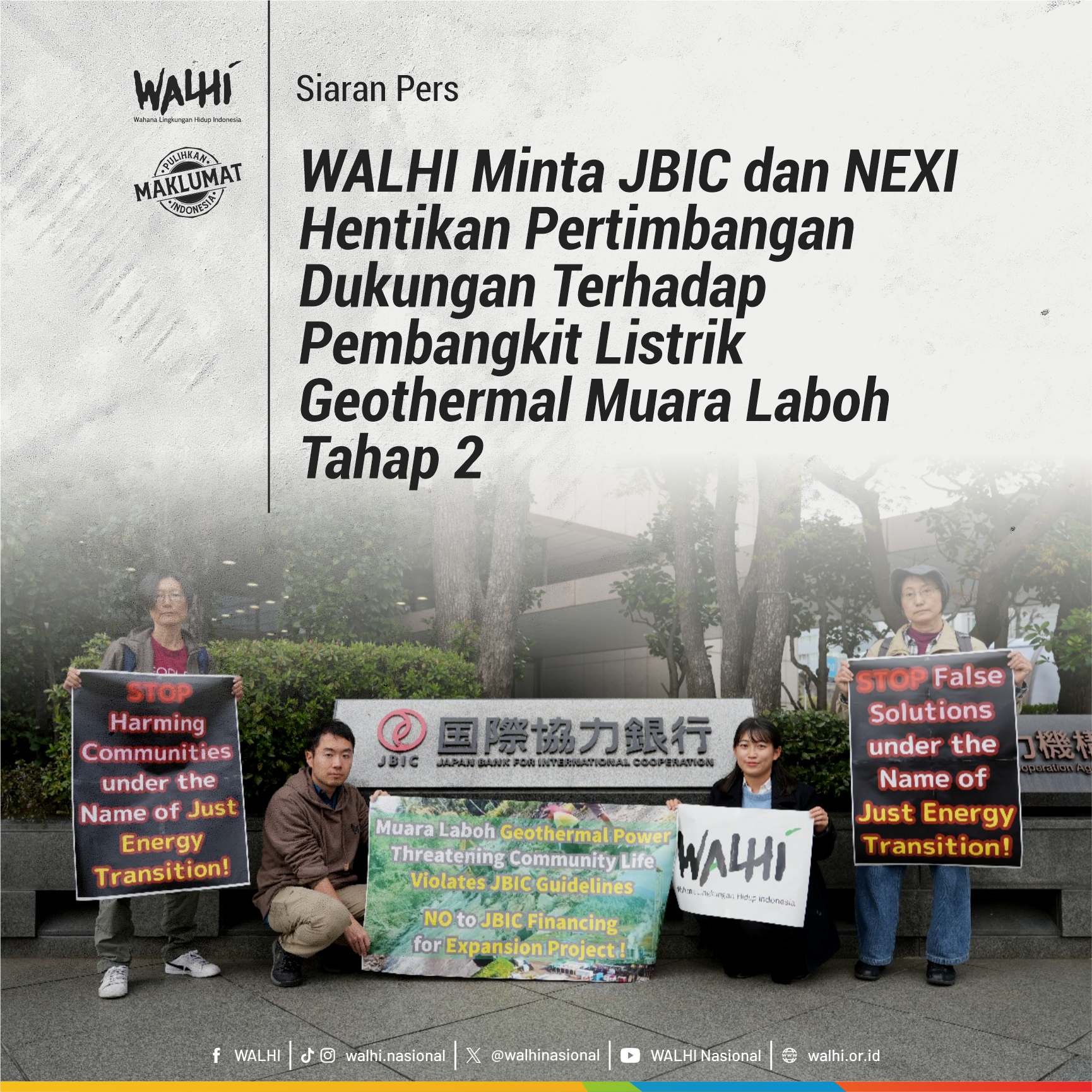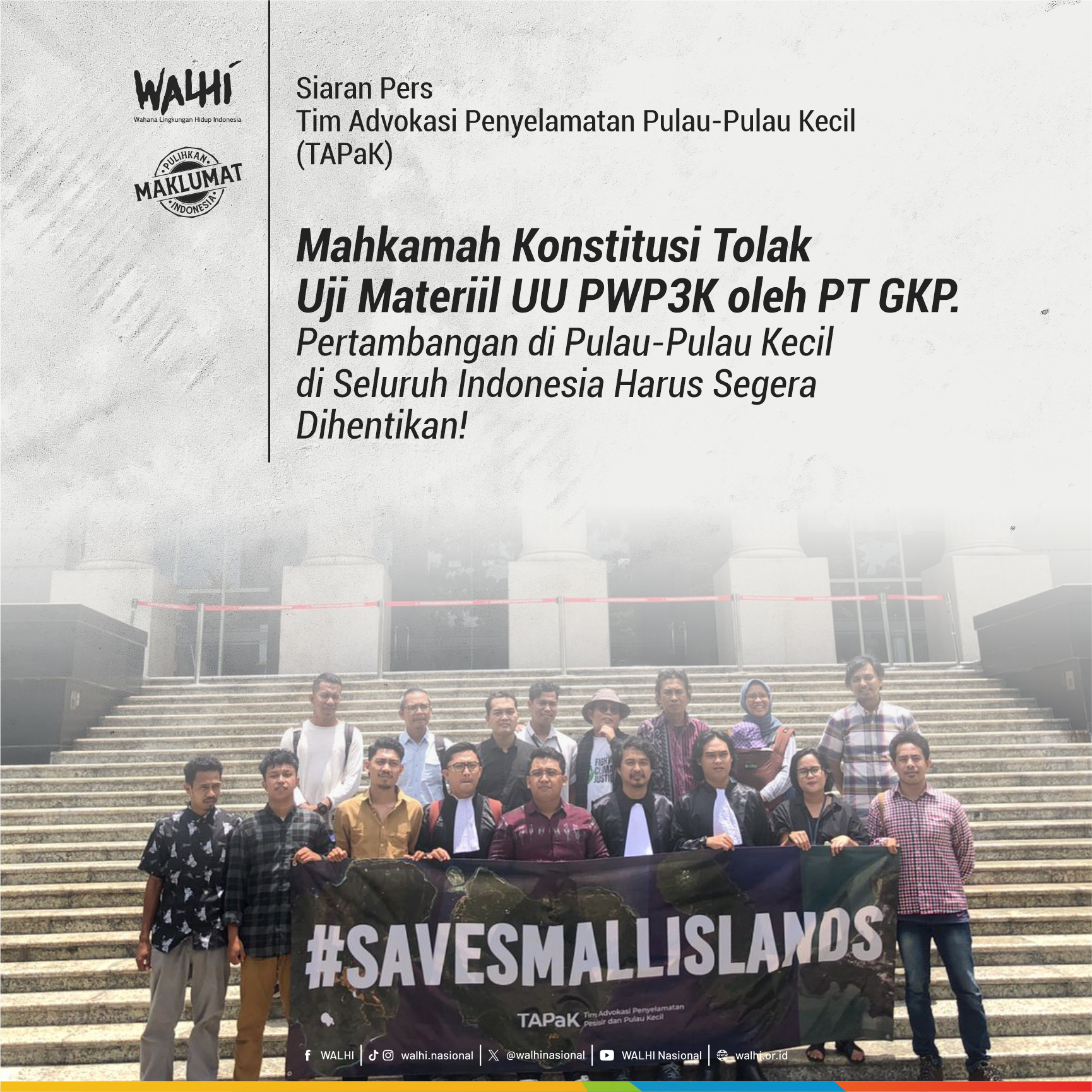BANDUNG--In a landmark judgement, the Bandung administrative court yesterday revoked the environmental permit for Cirebon Coal Fired Power Plant, known as "Cirebon 2". The civil case was filed in December 2016 by The People for Environmental Protection (Rakyat Penyelamat Lingkungan or RAPEL), assisted by the Advocacy Team for Climate Justice. "This is an important judgement which shows the failure of the local government to respect an approvals process designed to protect the lives and livelihoods of people in the surrounding area. Proponents PT CEPR must immediately stop all construction and development activities on Cirebon 2 and pull out of the area so the fishermen can resume their lives,” said Wahyu Widianto, campaign manager of WALHI West Java. The court decision came one day after a consortium of international financiers committed 1.74 million dollars to back the plant. The consortium, led by Japan Bank of International Cooperation (JBIC), comprises Korea Eximbank (KEXIM), and Nippon Export and Investment Insurance (NEXI). "JBIC and the consortium has signed a loan agreement despite their full knowledge that a civil case to halt the plant's development was underway. We have sent JBIC a letter informing them of the court case," added Widianto. "Signing the loan agreement on day before the court decision shows a total disrespect for Indonesian laws and even could be seen as an attempt to influence the court. Therefore, JBIC now must drop all financing plans for Cirebon 2,” urged Dwi Sawung, Campaigner for WALHI/Friends of the Earth Indonesia. The judgement stipulates that Cirebon 2 has violated the local spatial planning law. Whereas the spatial plan only designated the district of Astanajapura for the power plant development, Cirebon 2 was found to be also covering the district of Mundu, which is assigned as an area for purposes other than the power plant[i].
According to Indonesian law, an environmental permit is a key requirement in infrastructure projects and is issued by the local government upon the satisfactory completion of the environmental impact assessment or "AMDAL". Without an environmental permit, a project should not be allowed to continue, however, the Provincial Government has a 14 day window to appeal the judgement. After this period, the court ruling effectively means that ongoing developments of Cirebon 2 must cease. Additionally, the court has not yet ruled on all other aspects mentioned in the civil case, which alleges the failure of the local government to meet substantive and procedural requirements in issuing the environmental permit. The civil suit alleges that the AMDAL, which forms the basis of the permit, contains significant errors and has failed to assess basic health and environmental impacts of the expansion. The AMDAL and the environmental permit were also issued and enacted without the required prior consultation with the impacted communities. Background The original Cirebon Coal Fired Power Plant has led to many negative impacts to local livelihoods. With the expansion, more small fishermen, shrimp catchers, mussel gatherers, shrimp paste makers and salt producers are at risk of losing their livelihoods. Nearly all of the local villagers depend on coastal based natural resources as their source of livelihood. The damage and environmental destruction caused by the first power plant has adversely impacted health of the local people and local livelihoods, and it will worsen with the expansion. In addition, ongoing development have already contributed to social tension and rising local crime rates. For more information, please contact:
- Wahyu Widianto/ +62 813 2042 3076 (WALHI West Java)
- Dwi Sawung / +62 8156104606 (WALHI/Friends of the Earth Indonesia)
- Hozue Hatae/ +63 9567685290 (Friends of the Earth Japan)
[i] As a context, another permit issued by the local government, called the location permit, has even assigned over 200 hectares to the developer, PT. Cirebon Energi Prasarana, covering the districts of Astanajapura, Mundu and Pangenan.






